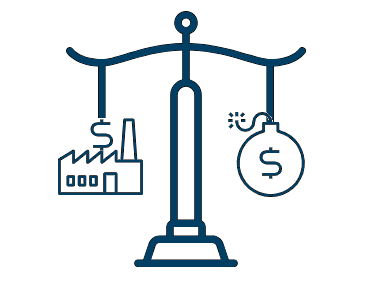LTV (for loan-to-value ratio) is a common acronym in CRE. It represents a ratio: specifically the value of the loan amount to the value of the property.
The loan amount is generally the current value owing to the debt funder (bank). This value can differ to the total loan facility – which represents the total debt value extended or available for use by the borrower.
Higher LTVs mean more risk for the lender. Lower LTVs mean there is lower risk to the lender. I.e. if the borrower cannot meet their financial obligations, and the property has to be sold, there is a higher chance of the property being sold at a value in excess of the property’s debt value. This means that the lender has a greater chance of recovering their loan.
Example of LTV calculation
Property value is R100M
Current loan value is R40M
The LTV ratio is 40%
Out of interest, the property value less the loan value is known as the property equity.









